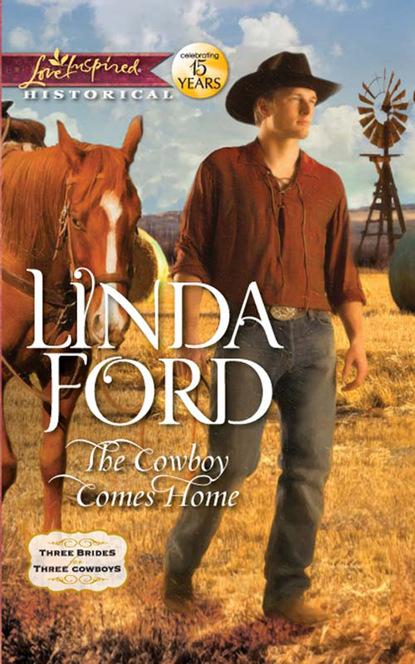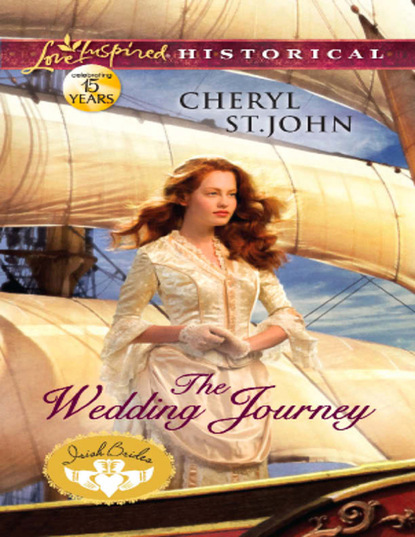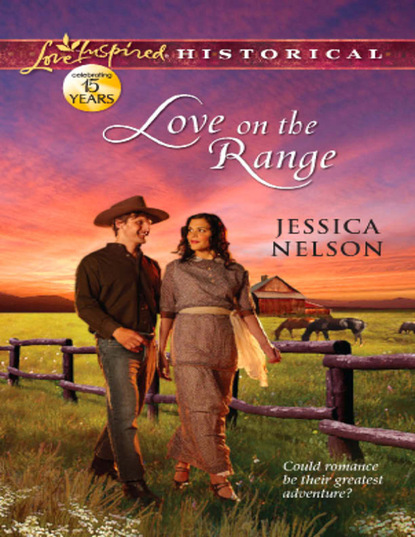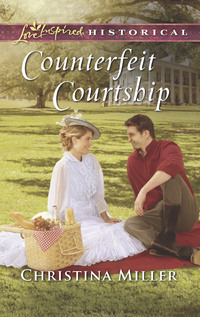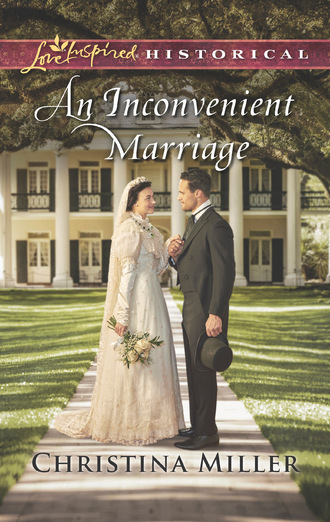
Полная версия
An Inconvenient Marriage
At least his rapid approach distracted her and Grandmother from their dismal discussion of the will. For that small comfort, she gave thanks.
“The parson seems not to have a wife, and this puts him in trouble,” Grandmother said in a low tone as they watched him approach the ladies’ parlor. “I wish the deacons had allowed me to deliver their news.”
Clarissa took in the mixed emotions on Grandmother’s face, the odd tenor of her voice. She seemed almost to want him to stay while at the same time wishing to hasten his departure. “What would you have done that the deacons didn’t?”
“Perhaps I would have given him a ride to the landing so he could head back to Vicksburg.” She dropped her voice to a whisper. “Or maybe I’d have driven him up and down Pearl Street so he could see all the young women promenading to each other’s town houses. He’d be sure to find a willing bride there.”
That much was true.
As the parson stopped at the parlor entrance, the intensity in his dark brown eyes somehow changed Clarissa’s perspective of him. In that instant she no longer saw him as a struggling father, an embarrassed gentleman who’d interrupted her rehearsal, or even the Fighting Chaplain. She now saw a ruggedly handsome man of action, of purpose—but what purpose did he now bring to her and Grandmother?
“You look ablaze with some dire matter or another,” Grandmother said with an air of enjoying an unfolding melodrama.
“I am. I need to find a wife.”
The poor man was in as much trouble as Clarissa was. She needed to leave him to pray about it and discuss it with her deaconess grandmother. “Forgive me, Reverend, if I take my leave.”
“Clarissa, please stay and help sort out this misunderstanding.” Grandmother waved her cane at the wing chairs in the far corner, and Clarissa and the parson sat on either side of her. “How did you escape your wedding?”
“What wedding?”
“Your wedding—to Emily St. John of Memphis.”
The parson let out a bark of a laugh. “I admit Miss St. John tried her best to arrange a marriage, but to no avail.”
A stricken look came over Grandmother, and she lifted her hand to her chest for a moment. “I see the information my cousin Mary Grace gave me was untrue.”
Clarissa couldn’t pull her gaze from her grandmother’s lined face as an unexpected sheepishness settled there. “What information?”
“A Daily Memphis Avalanche clipping, stating the Fighting Chaplain would marry Miss St. John.”
“That was her ploy to trap me into marriage.”
“Cousin Mary Grace has been sending you her hometown gossip column again?” At her grandmother’s raised brows, Clarissa knew it was true. “Why do you believe that rag? It’s shameful that Mary Grace writes such a column, and I think she makes up most of it. I’m sorry she’s a war widow but, I declare, she needs to find something to do other than nosing in other people’s affairs.”
“And you carried this gossip to the deacon board, Missus Adams?”
Grandmother straightened, adding an inch to her height, although she again fidgeted with the handle of her cane. “The article included a picture of the two of you together at church. If you’ll recall, you told me in a letter that you were eager for Emily to see Natchez, since she would enjoy our city.”
“Emma. I said my daughter, Emma, would like to live here. Not Emily.” The parson’s low, steady voice gave authenticity to his words. “And the picture of us they included was not a photograph but a drawing. An expression of someone’s imagination. Miss St. John and I were never together in that church.”
A good deal of the color left Grandmother’s face, as if she realized she had caused this unfortunate situation. But, of course, being Euphemia Adams, she would never admit she’d been wrong.
But could she make it right? She couldn’t change the bylaws, and she certainly couldn’t change the reverend’s marital status. At once, Clarissa’s careless joking with Emma rang through her mind.
Do you know of a lady he might like?
Well, my grandmother is unmarried...
Suddenly that joke wasn’t funny anymore.
“I’ve thought of a remedy to this situation,” he said, interrupting Clarissa’s thoughts.
She frowned at the strained look in his eyes. Whatever remedy could he possibly offer?
His brow took on a sheen, and he moistened his lips. “Miss Adams, you are in a tight spot, and so am I. It appears we each need a spouse.”
She felt her face blanch. Need a spouse? Could he mean...?
“I could secure a ministry elsewhere, but Natchez seems the best place for my daughter, not to mention the fact God called me here.” He stood and moved to Clarissa’s side, took her hand. “And you need a husband if you are to receive your inheritance.”
Husband? The parson was suggesting they get—married?
She snatched her hand away. What peculiar scheme was this? Clarissa made for the door, wanting nothing more than to leave this ridiculous conversation. “My answer is no. I swanny, Reverend, if this is how you solve your problems, you may want to leave Natchez. Here we value propriety and traditional living.”
Grandmother stopped her with a firm hand on the upper arm. “You have everything to lose, including my home. I suggest you simmer down and let the man talk.”
“Fine.” Clarissa faced the preacher, since she could hardly defy her grandmother in front of him. But this change of events was occurring much too fast for her.
He turned those dark eyes on her, his whole soul in them. To her surprise, a boyish shyness passed across those eyes. “Have you another idea, Miss Adams? Another man you prefer to me?”
His vulnerability touched something in her heart. She had to look away. “No other man.”
“I need help with Emma. She and I were once close. When I went to war, I left her and her mother in Vicksburg with her mother’s parents.” The shyness deepened—or was it sadness? “But their house overlooks a strategic spot on the Mississippi River, and I realized the Yankees would likely shell the major port cities, perhaps even their home. I felt they were unsafe there. Her mother passed on about then, so I sent Emma to boarding school in Herrodsburg, Kentucky. Eventually she got herself into trouble—missing classes, sneaking out in the evenings. By that time, the war was over and I was traveling as an evangelist. I had to stop and give her a home instead.”
Grandmother gasped and then looked as if she wanted to skin him alive. “Hezekiah and I once went to Herrodsburg. It’s but a few miles from Perryville, is it not?”
He let out a giant breath, gazing out the parlor window as if suddenly unwilling—or unable—to look at them. “The site of the bloody Battle of Perryville. Sending her there was the worst mistake I’ve ever made. Believe me, I berate myself for my error every day of my life.”
His distress cut into Clarissa, and she chose her words carefully. “You couldn’t have known a battle would take place so near. Did it affect her greatly?”
“She’s not the girl she once was. She’s rebellious and dissatisfied, and I can’t reach her. She always seems embarrassed of me.” The reverend hesitated then turned his focus to Clarissa, his dark eyes unreadable. “Her one joy is singing. When Colonel Talbot let me know your pulpit was empty, he also told me of a gifted vocal teacher here. If Emma can flourish anywhere, I think that place is Natchez.”
Emma—the troubled young girl. Clarissa had sensed a sweetness inside her—sweetness masked by bitterness and disappointment. How well Clarissa knew those emotions. “I’ve fought her battle, and I still fight it at times.”
“She’s taken a shine to you. I think that, as her stepmother, you could help her. I’m sure you would grow to love her, and she you.”
“Loving Emma would not be hard.” Loving the reverend would be another story altogether.
Clarissa stepped away to the window and gazed down upon the chinaberry trees flanking State Street. “You said Graham Talbot told you of a voice teacher. I’m the only one in town, so he must have spoken of me.”
“I suspected as much, especially since you’re the choir director. Your speaking voice is so melodic, I knew you must be a talented singer.”
Clarissa opened her mouth to speak, but his words so surprised her, it took her a moment to respond with her thanks. What kind of man was this, giving her the one compliment that would reach her heart more than any other? How could he have known her father had always told her the same thing? And who else knew how those words would comfort her heart?
She shook her head. It was mere coincidence. And the parson had a nerve too, suggesting marriage in such a manner.
Her grandmother caught her attention then and gave her an almost imperceptible nod, her brows high and eyes wide. Then she smiled what Clarissa was sure she meant as a sweet, grandmotherly smile.
But Grandmother Euphemia was more vinegar and lemons than sugar and spice. Exactly who was she trying to fool? And what was she trying to do? Marry Clarissa off as Grandfather had always wanted?
Clarissa narrowed her eyes at the older lady, unwilling to take this a step further without finding out why Grandmother was acting so strangely about this even-stranger proposal. Which hadn’t been a proposal at all, now that she thought about it. “Parson, would you please excuse my grandmother and me for a moment?”
When the reverend had taken his leave, she closed the door with a fierceness that fell just short of a slam, making the glass rattle enough to release a tiny bit of her frustration. She opened her mouth to speak.
Grandmother beat her to it.
“Clarissa, this is a fine opportunity. It’s the only way we can keep Camellia Pointe.” She rapped her cane on the pine floor as she was wont to do when emphasizing a point. But this tap carried a strange finality that spiked through Clarissa like the Fighting Chaplain’s famed sword. “Do you realize we could move back to Camellia Pointe? With a man in the family, we’d be safe in the country again. And with Absalom back from the dead, so to speak, we’d have to move out of his town house anyway. I say you should move forward with the reverend’s suggestion.”
Move forward? Clarissa longed for a cane of her own to rap at her grandmother. “You’re not being rational. If I was willing to consider this, which I am not, it would take me a good deal of time to decide.”
“You don’t have time.” Grandmother said it as if they spoke of nothing more impacting than a horseback ride before Sunday service. “The Reverend Gifford’s interim ministry is over. He’s leaving on the last steamboat tonight.”
“I refuse to marry a stranger without thinking it through, without praying about it.”
“Then pray fast. You don’t want that Reverend Abernathy from Faith Bethel to conduct the service, do you?”
Not that creepy-looking, obstinate man. “We could send to Vicksburg or Jackson for a preacher. If I decide I need him.”
“You know the situation of both those churches—of every church in the South, including this one. Until our economy improves, no deacon board will approve such a trip for its pastor. When members’ income is low, the tithe is low. It’s simply too expensive, and I can’t pay for it either.”
“Nevertheless, I’ve always said I’d never marry for the sake of convenience.”
“You’ve always known my own marriage was arranged, and that my father brought me here from Memphis to marry Hezekiah. But we were happy.” Grandmother cast her gaze through the door glass and into the hall, where a portrait of Grandfather hung. “Marriages of convenience can develop into great love.”
“Great love?” Clarissa lowered her voice, having unintentionally raised it even more, enough to bring Grandmother’s brows up again. “You were happy, but Absalom’s parents had an arranged marriage too, and they were miserable their whole lives long. Remember how distant they were to each other, always traveling and living apart? How was their marriage happy?”
“They were—different.”
“Obviously. What parent would name their child Absalom—one of the worst sons in the whole Bible?”
Grandmother Euphemia put on her “no-nonsense” face. “They have nothing to do with us now, other than the fact that their son is trying to take what’s ours. Think about Camellia Pointe instead. Think about Good Shepherd and the thousands of hours your grandfather spent there, providing a safe place for less-fortunate travelers to stay at the waterfront.”
“But to marry...” Clarissa ran her thumb across the bare third finger of her left hand.
Grandmother’s eyes brightened with comprehension. “This is because of Harold Goss, isn’t it? Do you refuse to marry the parson because you’re still in love with that fool?”
“You don’t understand. You never have. Harold’s betrayal killed all the tender emotions I had for him. If he hadn’t up and married that hateful Belinda Grimes just because her father had bigger cotton fields than we did—”
“He would have found someone else with even more money, and he would have married her.”
“While he was engaged to me?”
Grandmother waved away her objection. “It could have been worse. Missy Conrad’s beau just never showed up for their wedding. Left her with a church full of guests and pink azaleas.”
“Yes, and she married a few months later and was the talk of Natchez. She had to endure both the pain of betrayal and public humiliation. Not to mention pity.” And the pity was the worst part. Everywhere Missy went, the Natchez elite stopped to whisper. And they’d done the same with Clarissa. “I can’t endure the whole town feeling sorry for me because I was the bride in a loveless, arranged marriage.”
“Then think of enduring Camellia Pointe going to ruin under your cousin’s management. He may well sell it, so imagine enduring the knowledge of strangers in your bedroom, in your grandfather’s study—in his little sanctuary.” Grandmother surveyed her a moment and then touched Clarissa’s cheek. “Can you honestly say you could give it up?”
At the rare tender caress, Clarissa looked into her grandmother’s eyes, a mirror image of her own. She saw something there she’d never seen before, and it looked like fear.
The bitter bite of fear welled up in Clarissa’s throat, as well—fear of loss, fear of trust. Grandmother was right about many aspects of this appalling situation, but she was wrong about Harold Goss. Clarissa wasn’t still in love with him. However, he had reinforced the lesson her father had taught her years before: men could not be trusted.
Clarissa choked back her own fear in light of her grandmother’s struggle, pulling a painful breath into her constricted lungs. She owed everything to the older lady. And she was the only family Clarissa had left—at least, the only family member who had not betrayed her.
She caught her breath as another thought embedded itself in her mind. What if she could bring Papa back by keeping their home?
The Spring Festival was scheduled on Clarissa’s twenty-first birthday, with the Mississippi Community Choir Association Contest taking place in Natchez for the first time ever. The association Papa had founded thirty years ago, back when he and Mother lived in the Delta.
And this year, Natchez stood a good chance of winning, with a larger choir than ever and a few new, spectacular vocalists. Most important of all, the Reverend Montgomery, a noted choirmaster, had agreed to lead them.
She pressed her hand to her throat as her thoughts swirled. Missus Milburn, president of the Spring Festival committee, had offered to hold the festival at her estate. But that was before the elderly woman had taken a bad fall. Perhaps Clarissa could host instead—at Camellia Pointe.
Then Papa might come back...
She’d call on Missus Milburn today. And write to Papa tonight.
She had no choice.
Drawing a deep breath of courage, she gestured toward the door. “Would you please fetch the reverend for me?”
“I will. And we can have the wedding on the front gallery at Camellia Pointe.” Grandmother hastened to the door and flung it open—a little too joyously for Clarissa’s taste. Within moments her cane tapped down the hallway. “Reverend Montgomery, are you there?”
Clarissa lowered herself to the hearthside wing chair, relieving her trembling legs but not her erratic pulse. She closed her eyes and drew a deep breath, but it failed to calm her. Heavenly Father, don’t let me make a mistake.
Could she do it—marry the parson?
She’d never trust any man enough to have a true marriage, true love. So wouldn’t a marriage of convenience to the parson be worth it if it meant she could keep Camellia Pointe—and see Papa again?
The reverend’s heavy footsteps sounded outside the ladies’ parlor, and she opened her eyes. He stepped in, his features soft with hope. He stopped beside her chair and lifted his gaze for a moment, as if to heaven.
As she had seen her grandfather do a thousand times.
Clarissa stood. “Reverend, I accept your offer.”
* * *
The late-afternoon sun cast the home into shadow, throwing a duskiness into Samuel’s heart as well. He pulled into the uphill circle drive and stopped his phaeton beside the graying sign with its faded letters: Camellia Pointe. He shielded his eyes from the lowering sun and gazed upon one of the largest, most austere Southern mansions he’d ever seen. At the sight of the immoderate display of wealth, he cast aside all he’d done to brace himself for his marriage.
Even in the fading light, Camellia Pointe showed herself off, her two-story galleries embellishing her white-stucco frame, her massive columns timeless, her Greek Revival lines impeccable. She stood proud, elegant—excessive.
Hardly an appropriate setting for a minister’s wedding.
Everything in him wanted to turn the buggy around and head back to town. Back to Christ Church. Back to a place of sanity and safety for his heart.
Perhaps he should have stood his ground when Clarissa had suggested holding the ceremony on the front gallery of her family home. But she’d clearly set her heart on it, and he’d hated to refuse her first request of him.
A church wedding—that’s what they should have had...
He stole a glance at Emma beside him and the book she’d immersed herself in every time they’d been alone since he fetched her from Kentucky. As she’d also done when Samuel announced his marriage plan. Could nothing move his daughter? Would she remain forever engrossed in her own thoughts, her own world?
She stirred as if sensing his gaze. Then she let out a squeal and clasped his upper arm with the grip of youthful exuberance. “Is this Clarissa’s home?”
Samuel paused, savoring his daughter’s hand on his arm—the first touch she’d given him since he’d left her at the Kentucky school four years ago. “It’s Camellia Pointe.”
Emma tossed the book to the carriage seat, her brown eyes gleaming. “I’ve never seen such a beautiful house. Can we live here?”
“This is no place for a preacher. We’ll live in the church manse as planned.”
With a frown, she dropped her hand from his arm and picked up her book. But as he urged the horse up the drive, she kept the book closed, her focus on the mansion.
Samuel fixed his gaze on Camellia Pointe, as well—the one thing, other than the infernal book, that had captured his daughter’s attention and brought her out of her melancholy. Even for those few moments. Despite Emma’s sentiments, he would hurry this wedding ceremony along and hasten his new family to the manse.
Cresting the hill, Samuel circled around to the front entrance, taking in the broken sections of the second-floor gallery railing and the missing glass in a front window. At the sight of Colonel Talbot and Joseph Duncan in a seemingly deep discussion on the lower gallery—the very place he’d be married in a few minutes—the cool winter air suddenly turned cold as a Tennessee battlefield in January. But his daughter’s lace shawl lay unused on the seat between them, and he realized his own blood, not the air, had gone frigid.
And if his impending wedding affected him like this, how must Miss Adams feel?
Samuel sucked in a deep breath, the atmosphere thick with river humidity even here, a full mile from the Mississippi. The dark-haired woman must wish she’d never seen him, never taken him up on his crazy offer. But it was too late to change her mind—or his.
He pulled up behind an impressive two-horse landau that suited this grand estate. He knew nothing of his bride. What would she be like? Warm and sweet as his mother had been, or cool and distant like Veronica? Did she take tea or coffee? Was she neat or a little messy? Did she like to sit up at night and sleep late in the mornings, or did she love the fresh, dewy new day, as he did? Roses or daisies—or camellias?
Samuel dropped the reins over the dash. All he knew of her was her name—and her position as potential heiress of this estate.
He’d known more about Veronica before their wedding...
At the thought, he slipped his finger under his stiff collar, hoping to relieve the lump in his tight throat. A mockingbird flew overhead and lit on the top branch of a nearby pine. Its spontaneous song touched a raw place in his heart.
He was entering this marriage the same way he’d begun his first. He had no guarantee this one would turn out any better.
How many people would soon discover he was a fraud, unfit to be a husband, and would mock his deceit? And would he lose his church because of it—and thereby lose Emma?
He shoved aside the thought. If he couldn’t control these wanderings of mind, he wouldn’t make it through the ceremony. With effort, Samuel turned his focus to his surroundings. In the shade of a massive live oak, he sensed an emptiness about the place. Quite a contrast from the bustle and busyness one would expect before a wedding. Even a ceremony as hasty as this. Did Miss Adams and the dowager live in this monstrosity alone? How could they have managed?
The moment he’d assisted Emma from his modest rented conveyance, she flashed her attention toward the magnificent landau in front of them. More specifically, toward the young man now making a show of leaping down from the expensive carriage, tossing his long mane of wavy blond hair as he hit the ground. He flicked at the sleeve of his gray wool sateen suit, which must have cost more than the wedding ring Samuel had purchased this afternoon. The smile he aimed at Emma looked nothing like the grin a well-intentioned youth would give a Christian girl.
Samuel’s wedding-day jitters erased any mercy he might otherwise have shown. He widened his stance and cleared his throat. When the young man in gray caught his eye, Samuel crossed his arms over his chest and issued the same dark, silent warning he’d given Absalom earlier today.
After sneering at Samuel, the youth shifted his gaze toward Emma again and then skulked off.
He would bear watching.
Absalom caught Samuel’s attention then as he exited the carriage with a woman about Samuel’s age, her hair the same color as the young man’s. As she stepped to the ground, her giant purple hat bobbed with her effort.
Oversize hats, overlong hair—this family’s tastes certainly leaned toward the peculiar.
“Is that the Fighting Chaplain?” The woman’s strident stage whisper carried to Samuel and, no doubt, beyond.
Absalom took her arm and tried to propel her toward the gallery. But she pulled away and headed toward Samuel, batting her eyelashes in a way that made him unsure if she was trying for his attention or merely had a speck of dust in her eye. “I’m Absalom’s wife, Drusilla Adams, and you saw my son, Beau, a moment ago. I’ve heard all about your exploits...”
As she chattered on about what she thought she knew of his war experience, she gazed at Samuel the same way the young man had looked at Emma. The thought unnerved him and he turned to Absalom for his reaction to his wife’s behavior. To Samuel’s disgust, the man merely pulled a fat cigar from within his coat and cut off his wife midsentence.


